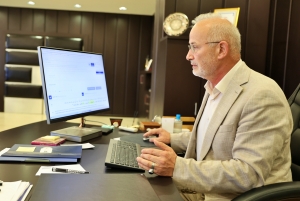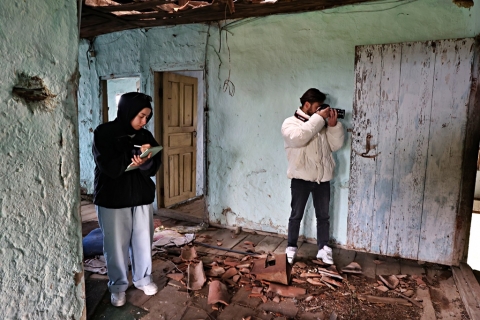OMU Launches AI-Driven Hadith Database That Will Ensure Accurate Verification
A new AI-supported "Hadith Database" has been launched to verify the authenticity of hadiths, serving both academics and the public.
The project, spearheaded by Ondokuz Mayıs University (OMU) Rector Prof. Dr. Yavuz Ünal, aims to assist researchers and citizens in determining the authenticity of hadiths.
184,000 Hadiths Re-translated and Approved from 284,000
The "Hadith Database" project, which began in 2016 with contributions from nearly 100 academics, has re-translated and approved 184,000 hadiths out of 284,000. Speaking to the Anadolu Agency (AA), Rector Ünal explained that the database consolidates hadiths in an electronic environment, ensuring that the narratives are accurately interpreted within their historical context. He noted that the project uses artificial intelligence to identify the main text of the hadiths, bringing a new perspective to authenticity. "This archival work goes beyond evaluating the reliability of the narrators, contributing to the re-assessment of our foundational religious and cultural texts. It is a multidisciplinary effort involving academics from various universities to prevent the misuse of our religious and cultural texts," said Ünal.
Rector Yavuz Ünal: "The Project Meets Needs Beyond Hadith Verification in Many Fields"
Prof. Dr. Yavuz Ünal emphasized that the system is unique, allowing distorted texts, which have been removed from their original context and are prone to exploitation, to be understood within their actual context. "One of the most significant aspects of this project is the use of technology from the beginning. While identifying those who use the same word is relatively simple regarding information technology, detecting the narrative's essence without using specific terms can only be achieved through machine learning. Thus, machine learning and artificial intelligence have been utilized and will continue to be used in this project," he explained.
He highlighted that the hadiths in the system could be directly cited as sources in academic studies. "The project addresses the needs not only in terms of hadith studies but also in fields such as Islamic studies, literature, and history. It is a platform that provides confidence, explaining why the text was stated, how it was understood and applied historically, and how it should be evaluated today. This makes the project significant," Prof. Dr. Ünal added.
Prof. Dr. Ünal pointed out the rapid change in information and the necessity of utilizing technological opportunities across all platforms. "If you acknowledge the evolution of information and accept the use of technology as a tool, it is crucial to keep up simultaneously. If you can incorporate technology into your life without becoming dependent, you will be happy, and your work will be easier. Otherwise, you become dependent on technology," he said.



















